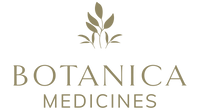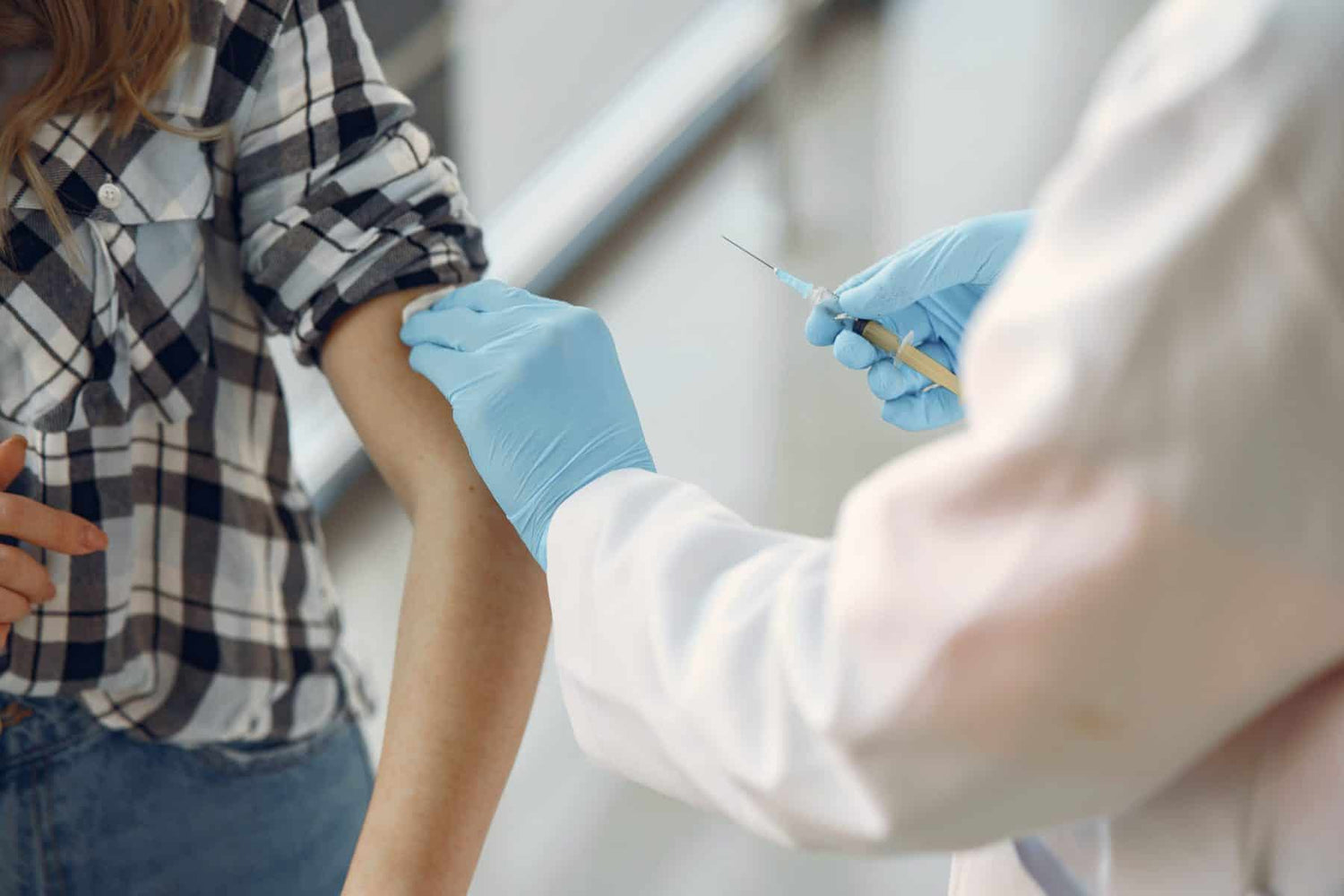Some preface notes
- The following tips are helpful regardless of your vaccination status, and will help your immune system in general. If you are planning to receive a vaccination soon, we encourage you to discuss these factors with your primary healthcare provider. Generally speaking, we advise you focus on these recommendations before, during and after vaccination.
- This blog is not an opinion piece on any vaccination. Our in-store naturopaths cannot advise you on vaccination. Legally, COVID-19 vaccines can only be discussed with a patient within a consultation, not over the counter at our store. Please be mindful when asking our staff for vaccine-related support, opinions or advice. A registered medical provider is the most appropriate source for vaccine-specific advice.
It’s a common thought to wonder: “why should I consider giving my body extra support before or after any vaccination?”
And the answer lies in homeostasis: the tendency towards a relatively state of equilibrium between interdependent elements, especially as maintained by physiological processes
Vaccination and the physiological response it initiates, like any immune reaction, disturbs homeostasis. The side effects you may experience after a vaccination, as well as symptoms of illness, are your body’s attempt at restoring balance; this state of homeostasis.
Of course, depending on your individual circumstances, your body may find it easier, or more challenging, to bounce back to balance after a disturbance. Such factors that influence this ability include your genetics, environment, current health status, past illness, immune function, diet, lifestyle, stress levels, mental health and, more holistically, your innate constitution.
When it comes to restoring homeostasis after any vaccine or immunisation, we want to focus on:
- Balancing an alarmed immune system (remember, an immune response is the aim of most vaccines)
- Regulating inflammation that often accompanies that immune response, and
- Supporting your emotional resilience leading up to, and after receiving, the vaccination
Here are our holistic, evidence-based recommendations to consider if you want to provide some extra support to your immune system (and your whole body), before AND after vaccination, to give yourself the best chance of an optimal response. Based on research, these recommendations may reduce the likelihood of experiencing severe side effects and encourage a healthy immune response to immunisation.
First up, diet
Blood Glucose Regulation
Blood glucose regulation is important for many things: energy, weight loss, cardiovascular health and overall metabolism. It’s also been found to be an important factor in immunity. When blood glucose is uncontrolled (often paired with a high carbohydrate diet or poor insulin function), there are often greater levels of inflammation. This state of inflammation includes increased cytokines in circulation (which you may have heard about in the last 2 years) which ultimately supports viral replication and can inhibit an optimal immune response to viral exposure.
As such, managing your blood glucose levels before, during and after vaccination is crucial. How can we do that through diet?
Minimising or eliminating as many processed carbohydrates as possible is our first recommendation here. Think breads, crackers, biscuits, pastries, cakes, packaged foods with added glucose, fructose, sucrose or honey. These foods often spike up your blood sugar and put strain on your pancreas (which secretes insulin). When these foods are consumed in moderate amounts for longer periods of time, insulin function becomes compromised and blood sugar levels can become uncontrolled. Focus on sourcing carbohydrates from wholefoods such as starchy vegetables, wholegrains and beans.
We also recommend using more cinnamon on your food and in your cooking (for example, morning porridge or oats with a good serve of cinnamon sprinkled through, or a spoonful of cinnamon added to a smoothie or hot drink). Ensure that this is ‘true’ cinnamon, also known as Cinnamomum zeylancium, as this is the species of cinnamon that has blood glucose balancing effects.
Chromium
Chromium is an important nutrient for blood glucose management. It can improve your overall metabolism of glucose and fats, and directly supports insulin function. With food as medicine, you can find this mineral high in asparagus, apples, egg yolks, mushrooms, peanuts, potatoes, raisins and brewer’s yeast. You can also supplement chromium, contact us here if you’d like some more information about what we stock.
Antioxidants
Another aspect we want to focus on in the diet is antioxidants. Oxidative stress is a physiological state associated with most diseases and disturbances to the body, where ‘free radicals’ are higher than your antioxidant defences. Oxidative stress can lead to tissue damage and puts an overall stress on the body. It has been noted that oxidative stress may be associated with adverse vaccine reactions. From the research journal, ‘Stresses’, an article from June 2021 stated, “the consequence of oxidative stress on immunological functions and the evidence of weakened virus vaccine effectiveness in […] patients raises concerns about COVID-19 vaccine responsiveness…”.
From a dietary perspective, eating a predominantly plant-based diet will improve your antioxidant status, as will taking active steps to manage blood glucose (as above) and balance inflammation within the body. It’s important to note that all plants and herbs will have some degree of antioxidant capacity.
Inflammation
Speaking of inflammation, Turmeric, a popular anti-inflammatory herb, can also support your immune system. For instance, curcumin (from Turmeric), can restore optimal levels of T cells (a type of immune cell) as well as reduce those inflammatory cytokines mentioned earlier. Including turmeric in your diet, or supplementing with curcumin, will be a beneficial step in supporting your immune system and inflammation levels.
Beyond diet, we also need to reflect on lifestyle and your environment.
Stress
Stress is obviously a huge factor in pandemic- and vaccine-related anxiety. Stress, whether physical or mental, may also contribute to more oxidative stress in the body, which tells us it’s a key target to focus on when preparing for vaccination. This is more prominent in cases where there is stress AND a degree of malnutrition (i.e. poor diet and/or nutritional deficiencies). As such, it’s important to look after you and make self-care a greater priority than ever before.
Recently we’ve been posting live Self-Care Sessions on our Facebook and Instagram pages every Wednesday night to help you combat stress and regulate your nervous system. Feel free to check those out (you can watch the replays), or even try some simple meditation or breathing techniques daily. These techniques are especially important when preparing for an overwhelming or anxiety-inducing event.
Sleep
Additionally, stress levels will be greater if sleep quality is poor (we also recently did a video on the importance of sleep and how to improve your sleep, you can watch that here on Facebook or here on Instagram). Our naturopath Karinda has also created a handout that offers some suggestions on improving your evening routine to encourage a better, more restful sleep, you can download that here
Movement
When it comes to lifestyle, moving your body in a healthy way is always important. Muscle-strengthening exercises, for example, will improve blood glucose stability and insulin function (which again, will help to reduce oxidative stress and inflammation in the body). Movement has countless other benefits when it comes to metabolism, cardiovascular health, nervous system, stress management and more. Above all else, find a kind of exercise that you enjoy and that gets you moving daily.
Time in Nature
We also can’t stress (pardon the pun) enough the importance of spending time in nature for coping with anxiety, stress and encouraging self-regulation. We’ve linked a research article below that displayed the benefits of nature therapy and gardening on stress levels. Even simply walking in nature, enjoying a picnic at the park, heading to the beach or a forest for an hour or two is enough to allow the healing power of nature to support your being.
You can ask our in-store naturopaths what the best options are for you in terms of coping with stress, anxiety and other mental health imbalances. Some herbal remedies or flower essences may be useful for you.
Nutritional Supplementation
Now, onto some specific supplements to support your immune response. We’ll keep this section short ‘n sweet!
- Zinc: this mineral activates immune cells, balances cytokine production, protects your tissues from oxidative species (that cause oxidative stress) due to inflammation. It’s also been found that depleted zinc levels may impact vaccination response & effectiveness.
- Vitamin D: A famous nutrient that we all tend to top on during winter anyway. Vitamin D may support the effectiveness of vaccines in clinical scenarios. It also balances pro-inflammatory cytokines and plays a role in regulating your entire immune system.
- Glutathione: This is a very potent antioxidant that is easily depleted in states of oxidative stress. Supplementing with glutathione may decrease severity of viral illness.
- N-acetyl-cysteine: Also known as NAC, this nutritional compound is related to glutathione in that it directly supports its production. NAC is also immune-modulating and may optimise immune cell numbers in the body.
- Probiotics: Well renowned for support gut health and digestive function, but equally as important for your immunity. Bacterial species in your gut, that are supported by probiotics, produce short chain fatty acids (SCFAs) when they metabolise fibre (again, the importance of a plant-based diet). These SCFAs support various immune, anti-inflammatory and cancer-protective responses in your body. We’ve only linked to one research article on this topic, but the body of evidence is enormous (and growing) on the connection between our gut microbiome, probiotics and immune function.
For all of these supplements, our lovely naturopathic staff will be able to support you in deciding which products are best for you. Please note, for some products, a consultation with a naturopath is required (and often recommended, to ensure you get the best results and answers tailored to your whole health picture).
We hope these tips are helpful to you in your immunity journey. Please see the References links below for further reading and evidence.
Reminder: The following tips are helpful regardless of your vaccination status, and will help your immune system in general. If you are planning to receive a vaccination soon, we encourage you to discuss these factors with your primary healthcare provider. Generally speaking, we advise you focus on these factors before, during and after vaccination
Please note: our in-store naturopaths cannot advise you on vaccination. Legally, COVID-19 vaccines can only be discussed with a patient in a consultation, not over the counter. Please be mindful when asking our staff for vaccine-related support, opinions or advice. A registered medical provider is the most appropriate source for vaccine-specific advice.


